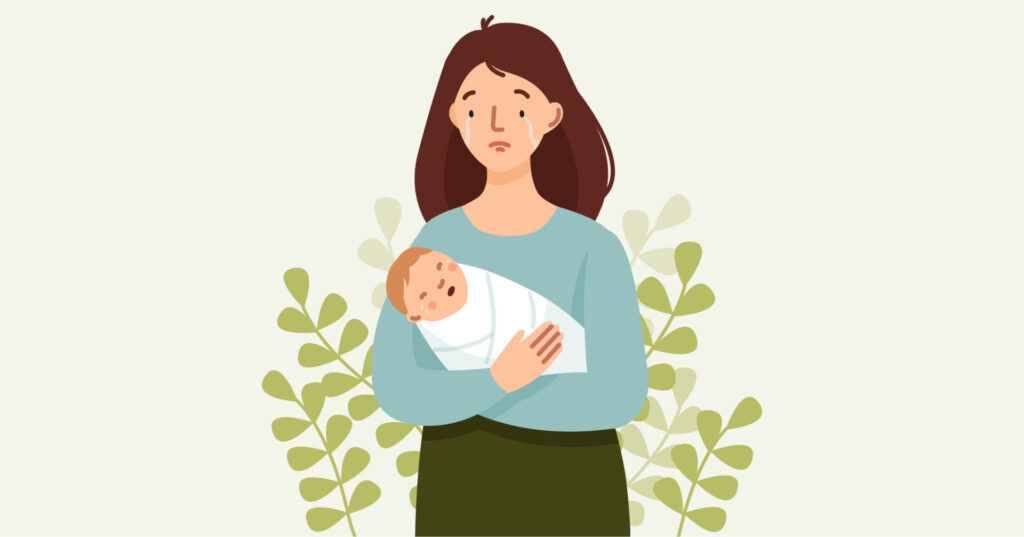What is Postpartum Depression?
The period of pregnancy and the period after birth of the child makes a woman vulnerable. Mothers experience extreme biological, emotional, social and chemical changes. This complex mix of physical, emotional and behavioural changes in some women after giving birth is known as postpartum depression (PDD). Postpartum depression is also addressed as post pregnancy depression.
According to DSM-5, postpartum depression is a form of major depression which begins within 4 weeks of the delivery. It affects 50 to 75% of mothers and further has a long lasting effect on 15% of mothers post pregnancy.
Effects of Postpartum Depression On Children
The mother is an infant’s primary environment. Therefore, if the primary caretaker is experiencing symptoms of mental disturbance, it is natural for the infant to be directly or indirectly affected by it therefore babies can sense depression.
Research by Netsi et al has concluded an association between postpartum depression in mothers and delayed cognitive language development in children, insecurity, attachment issues, behavioural problems, bad academic performance and many other factors.
Analysis of Netsi’s study also procured proof for the fact that children of depressed mothers are at a higher risk of depression during their adolescent and teenage years.
Other studies have also suggested that the postpartum depression effects on the child result in the child developing slower than expected, which indicates that the child talks late, walks late, learns slower, has difficulty adjusting to people other than family members and even may experience puberty later than expected. All of which has an adverse effect on other aspects of the child’s life.
Rutter states deteriorating development in children who have parents with psychological disorders. He noted three possible ways in which the child gets affected:
- Through the direct impact of the mother’s depression
- Through the interpersonal relationship with the parent and their disturbed parenting due to the disorder
- Genetically
Shen et al studied the effects of maternal and paternal depression on the child’s development. The study concluded that paternal depression had a lower effect on the child’s development.
A mother’s depression post childbirth involves her lack of interest in the things around her including the child she gave birth to which results in lack of emotional attachment between mother and child. Eventually, this initial gap between them leads to attachment problems or conjures unhealthy attachment styles in the child.
The initial months post pregnancy are when the child builds trust, links comfort and security to the mother’s body fragrance, touch and voice. If in those initial months the mother is emotionally or even physically absent due to her post pregnancy depression, the child lacks a sense of security and trust through their developmental years.
Women with a history of depression or any mood disorder are more likely to go through depression during and after pregnancy. In such cases, the effects of post pregnancy depression may manifest genetically. Treating the depressive symptoms of the mother reduces the effects on the child and prevents chances of depression, emotional disturbances and behavioural problems in the child.
If the mother’s depression goes undiagnosed, untreated and hence prolongs, it further causes difficulties in parenting. It may also cause marital problems. The mother’s unpredictable and low moods confuse the child further causing a toxic environment for the child’s growth and development.
Therefore, however prevalent postpartum depression may be, it should be treated to ensure the child’s development as well as protect the mother-child relationship.
Read More :
How to Deal with Guilt? Here are The 10 Useful Tips You Should Know
Grief : An Overwhelming Emotion
Teen Depression: Symptoms of Depression in Teens
10 Ways to Cope with Depression?
Postpartum Depression: Symptoms, Causes, Risks and Types
Psychotherapies to Treat Depression





